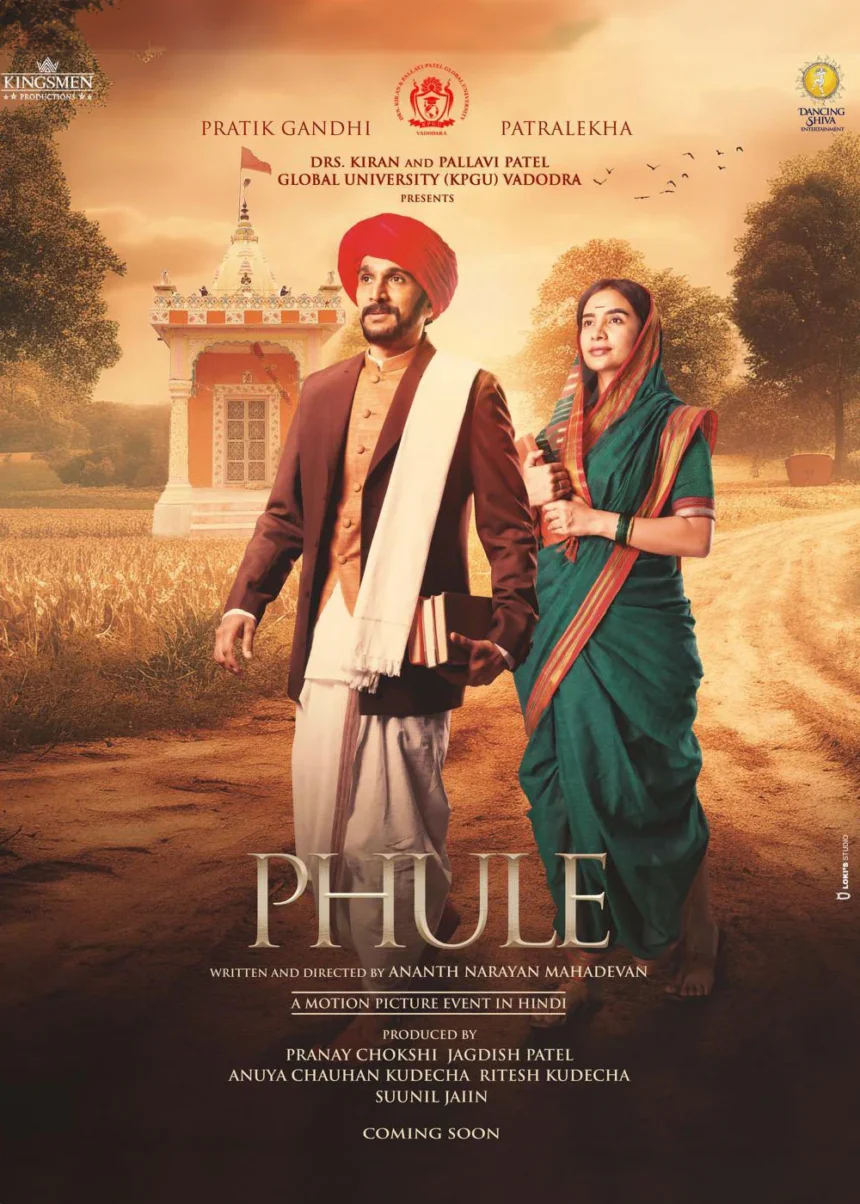Director: Ananth Narayan Mahadevan | Cast: Pratik Gandhi, Patralekha, Vinay Pathak, Joy Sengupta, Sushil Pandey, Darsheel Safary, Jayesh More, Aksahya Gurav | Rating: 2.5/5 stars

Phule sets out to honor the remarkable lives of Jyotiba Phule and Savitribai Phule, two pioneering figures in India’s social reform history. Directed by Ananth Narayan Mahadevan, the film dives into the 19th-century realities of Maharashtra, a time when education was a distant dream for most women and caste discrimination was brutally normalized.
A Story Rooted in Courage and Conviction
The movie opens with a tender scene—young Savitri learning to read under the guidance of an older Jyotiba—a symbolic beginning to a lifetime of challenging the regressive norms of their time. As the couple champions female education and the empowerment of the marginalized, Phule sketches an accurate, albeit sanitized, portrayal of the oppressive social structures they fought against.
From showcasing the rigid caste hierarchies of 1840s Poona to illustrating the British strategy of divide-and-rule through caste divisions, the film touches upon multiple layers of injustice. Scenes like the hurling of dung at Jyotiba and Fatima Shaikh (played by Akshaya Gurav) offer stark glimpses into the harsh realities of the era.
Performances That Bring Gravitas
Pratik Gandhi as Jyotiba Phule delivers a performance steeped in quiet dignity, while Patralekha seizes more fiery moments as Savitribai, delivering powerful oratory against entrenched social evils. Both actors do justice to their legendary characters, navigating a script that often leans heavily on dialogue over action.
Vinay Pathak and Sushil Pandey aptly embody familial opposition, representing the Phules’ personal and societal challenges. Joy Sengupta’s portrayal of an irate Brahmin zealot adds a volatile antagonism, while Darsheel Safary’s brief appearance as the Phules’ adopted son lends emotional depth.
A Period Drama with Pacing Pitfalls
While Phule is grounded in thorough research, its two-hour-plus runtime feels unwieldy. The narrative tries to cram too much—touching on the 1857 revolt, the French revolution, Lincoln’s abolition of slavery, famines, and plagues—all of which dilute the focus from the Phules’ central journey. The result is a somewhat disjointed, almost textbook-like retelling rather than an immersive cinematic experience.
Final Verdict: A Worthy, If Middling, Effort
Phule shines in its earnestness and intent, offering viewers a much-needed revisit to the inspiring legacy of Jyotiba and Savitribai Phule. However, a tighter script and a more visually driven narrative could have transformed this biopic into something truly stirring. Instead, it remains a well-meaning, talky period drama that, while informative, struggles to maintain emotional momentum throughout.
Nonetheless, for anyone interested in the roots of India’s social reform movement, and for those who wish to learn more about two of its earliest champions, Phule is a story worth knowing—even if the telling is not always riveting.









